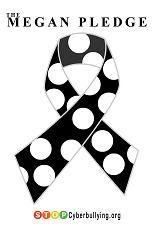Empathy. It is one of the markers people use in judging others. Does this person empathize with me? And how do I know?
Did you know that those cues for knowing how others feel, and whether they are empathizing with you or not, is culturally and socially determined? It is not totally universal? That the way we express emotion- or fail to express it- is also cultural?
Joey's teachers are very concerned right now about his ability to empathize. The reason is that when he is reading a book or looking at a picture, he cannot seem to communicate how the character in the book or picture feels. When asked, he often tells the teacher how he himself feels, regardless of the story or the picture.
For example, Joey was reading about Nathan Hale, and they got to the end of the story- you know, when he is hanged by the British. They story was pretty matter-of-fact: he is taken to the gallows, regrets having one life to give for his country, and is hanged. There was an accompanying picture showing him with the rope around his neck. The teacher asked him how Nathan Hale felt.
Joey said he felt happy.
According to the teacher, this was the wrong answer, and that Joey said "happy" because Joey was happy, because reading was almost over, and so was the book.
I have another theory.
See, the problem is that Joey not only has empathy- he understands how people around him are feeling, and understands they might be feeling something different from what he himself is feeling- he also has the next step, compassion. When someone else is hurting, Joey gets upset. With a scraped knee, he knows what to do: go give the person a hug and ask if they are ok, and say comforting things. If that hurt is something more subtle, he has no idea what to do. The teacher is upset- I don't know why- what do I do? So his reaction can be unexpected.
How can he have empathy for people around him, yet seem unable to communicate empathy towards characters in books and pictures?
Well, how do we tell how a character is feeling? Perhaps we think about the details of the story, what we have read, and know that those things would make us feel a certain way if they happened to us. We look at the face of the person in the picture, or the way they are shown holding their bodies. We pick up on cues we have been taught to look for- scrunching eyebrows, smiles or grimaces, a look in the eyes.
We know many autistic people have trouble picking up on these cues. So how can they have empathy?
Did you see how those two sentences didn't go together? What does "pick up on cues" have logically to do with "having empathy"? Logically, there is a problem there: picking up on cues does not cause you to have empathy or not. They are two separate things entirely.
Joey is picking up on cues of some kind- he knows how people around him are feeling. Sometimes he is even hyper-sensitive to how others are feeling, and it overwhelms him- especially if he does not know how to react to those emotions or those people. My theory is that he is picking up on different cues than the ones we expect: ones that don't translate well into words and pictures. A still picture doesn't have a cue he uses to determine how the person is feeling. A simple set of sequential facts to relate it back to an experience he has never had (Joey has never been executed for being a spy, for example) is meaningless to him in determining how another is feeling.
But he has just been asked a question about feelings, and he knows- he has been hard-trained- that he must answer. So he gives the questioner an answer- the one that pops into his head as ready and relevant would be his own feeling.
Though with Nathan Hale, I am a little dubious. After all, the man just said he regretted he had only one life to give for his country- the logical leap that he might be happy about being executed is not a terribly gaping one for a third grader to make. I've had college students do worse.
Subscribe to:
Post Comments (Atom)




















6 comments:
Last sentence...those were my thoughts from the beginning. Perhaps the teacher doesn't get it. If I died, for something I believed in so much I was willing to give my life many times over.... well, it doesn't take a rocket scientist.
There's some research that shows that autistic children have an abundance of empathy when we're talking about sensing others' emotions, but lack in knowing how to respond.
Language might be a barrier here; with no body language to see, no emotions to pick up on, all there is are words. There's a huge difference in what my oldest takes in visually with people around him and what he can understand textually. He cannot infer; it has to be explicitly stated in the text and he has to have understood what he read (he reads whole words only and doesn't know if he's misread).
Although I can certainly see where the idea that Nathan Hale might be happy at being able to give of himself completely might lead one to say happy. Totally.
When I was little, some teacher asked me about some story "Why did the little fish run away?" I looked irritated and said "Fish swim." She thought that proved I had no comprehension, ( and probably no empathy as well, though they didn't emphasize that as much in those days). My mother asked me why I said that, and I said "Fish swim, they can't run because they don't have legs. She read it wrong!"
My mom said "Well, she does have a point there!"
Basically, for me, the illogical grammar was the more important point, and once that was corrected I knew perfectly well what was up with the little fish, but that teacher was furious and not willing to give an inch after that.
My son is 17 now and mild to moderately autistic. He just sees the world differently. He might be reading one thing and the words are coming out of his mouth, but he is thinking of something else entirely. Take, for example, at dinner tonight, 11 of us are gathered around the table conversing about a dance performance the girls had this afternoon. He suddenly bursts out laughing. Totally inappropriate to the discussion. For him, his own world is often funny and way more entertaining than what is going on in ours. If you have time, pop over to my blog and read the story about him today. It's too long to summarize here.
Sandy
www.twelvemakesadozen.blogspot.com
I'd worry a lot more if he couldn't empathise with real people than with a 2D story.
Inference, is difficult for most children. To understand what is happening, how it is happening and what we are suppose to feel from a writers writing. I got 90's in Calculus, 70's in English, yet I read then, and read now, an adult book every 4 to 6 hours (If I can't get that much time in a row to read :) ). Empathising requires an emotional attachment... we don't empathise with the tv, the movie... we sympathise, we infer what is going to happen next. We walk away from it, we tend to forget about it, we don't worry about those people or their future lives.
I'd tell them they should work on teaching him how to infer what is happening, what happened, what will happen next and emotions written in words, not RL. My son's spec ed teacher "got this" when we discussed it and it is what she is working on with him.
His empathy and Joey's.... is just fine.
Remindes me of the IEP in Gr 3 (regular room) "child will make eye contact"..... yes, I got it removed but....
Hi joeymom,
I love, love, love this post. I'm wondering whether you would give me permission to repost it on my site "Autism and Empathy: Dispelling Myths and Breaking Stereotypes" (www.autismandempathy.com). If so, please send an email to me at rachel at autismandempathy dot com.
Post a Comment